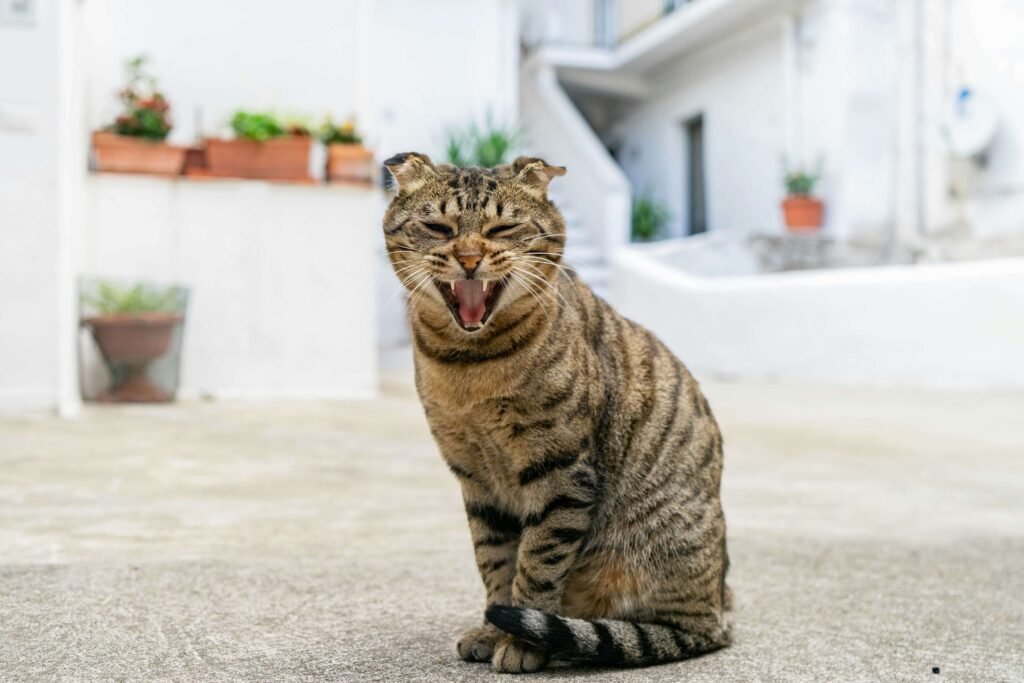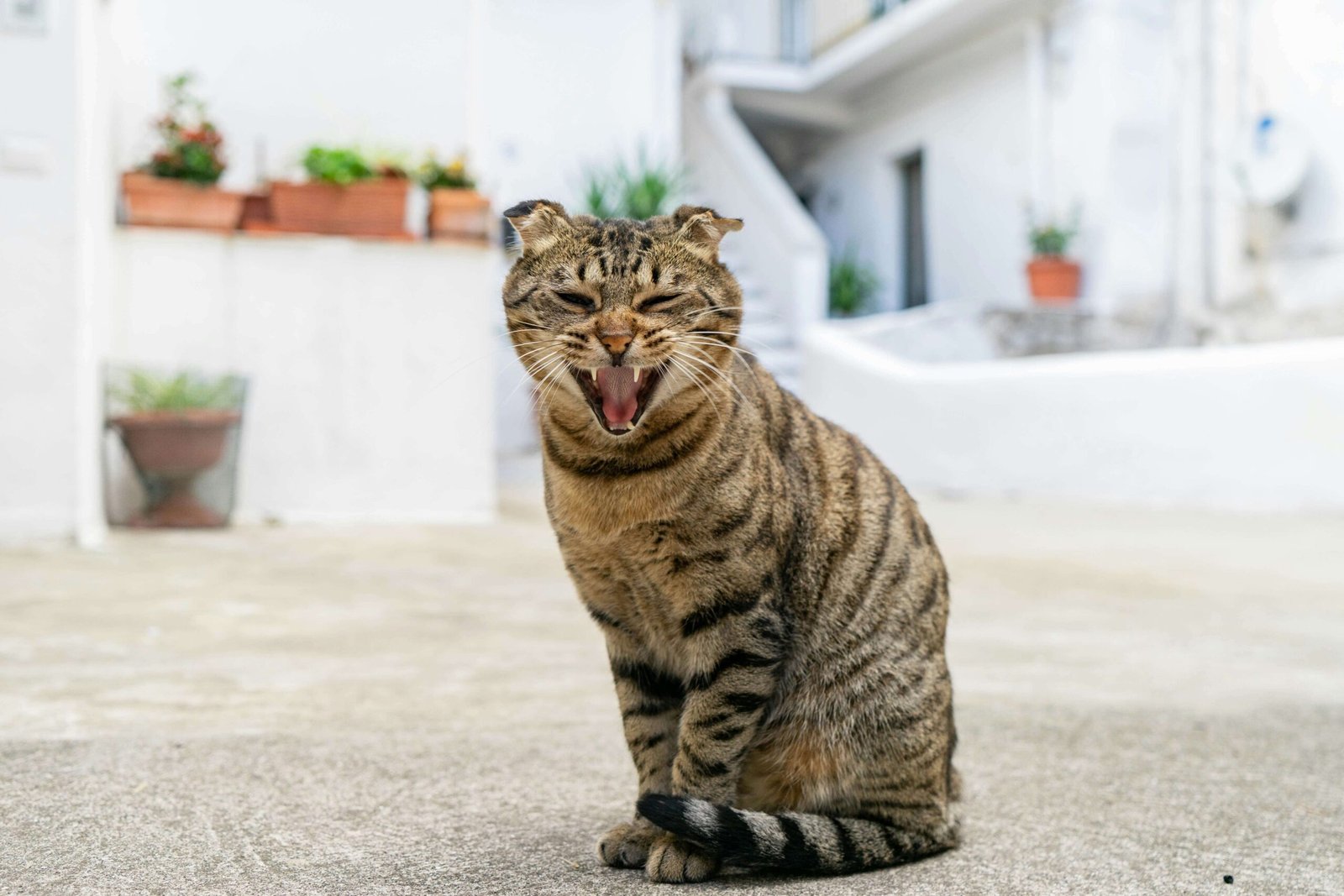Why Is My Cat Drooling Thick Saliva? Understanding the Causes
Cats are known for their meticulous grooming habits and their ability to keep themselves clean. However, when you notice your feline friend drooling thick saliva, it can be alarming. While occasional drooling might not be a cause for concern, persistent or excessive drooling could indicate an underlying issue that requires attention. In this blog post, we’ll explore the possible reasons behind this behavior, how to identify potential problems, and what steps you can take to ensure your cat stays happy and healthy. Whether you’re a seasoned cat owner or new to pet parenthood, this guide will help you better understand your furry companion’s needs.
Common Causes of Excessive Drooling in Cats
If your cat is drooling more than usual, it’s important to consider both benign and serious causes. Here’s a list of common reasons why your cat might be producing thick saliva:
Dental Issues : Problems like gum disease, tooth decay, or oral infections can cause discomfort, leading to excessive drooling.
Foreign Objects : Sometimes, cats accidentally ingest or get small objects stuck in their mouths, triggering drooling as a response.
Nausea or Digestive Upset : Cats experiencing stomach issues may drool as a side effect of feeling unwell.
Stress or Anxiety : Emotional distress can manifest physically, including through drooling.
Poisoning or Toxin Exposure : Certain plants, chemicals, or foods toxic to cats can result in drooling as a symptom.
Understanding these potential causes is the first step toward identifying whether your cat’s drooling is harmless or a sign of something more serious. Always monitor your cat closely and consult a vet if the behavior persists.
Signs That Your Cat’s Drooling May Be a Problem
While some drooling can be normal, there are specific signs that indicate your cat’s drooling might require veterinary attention. Below are key indicators to watch for:
Foul Breath : A strong odor from your cat’s mouth could signal dental disease or infection.
Difficulty Eating : If your cat avoids food or seems to struggle while chewing, it could point to oral pain.
Lethargy or Weakness : Unusual tiredness combined with drooling might suggest systemic illness.
Excessive Grooming : Over-grooming in one area could mean irritation or injury causing the drooling.
Behavioral Changes : Sudden changes in personality, such as aggression or withdrawal, often accompany health issues.
These symptoms, when paired with drooling, should prompt immediate action. Early detection and treatment can make all the difference in your cat’s recovery.
Check this guide 👉Why Cats Love to Lay Down: Best 7 Expert Tips!
Check this guide 👉Why Does My Cat Squeak? Best 7 Behavior Tips!
Check this guide 👉Why Does My Cat Shake His Tail? Best 7 Behavior Tips!

Signs to Watch For | Possible Underlying Causes |
|---|---|
Foul-smelling breath | Dental disease, oral infections |
Swollen or bleeding gums | Gingivitis, trauma |
Refusal to eat or drink | Mouth pain, digestive issues |
Drooling after eating | Food allergies, esophageal irritation |
Lethargy and vomiting | Poisoning, systemic illnesses |
How to Address Your Cat’s Drooling at Home
Before rushing to the vet, there are several steps you can take at home to address mild cases of drooling. Keep in mind that these measures are only suitable for minor issues and should never replace professional advice. Here’s what you can do:
Check Their Mouth : Gently examine your cat’s teeth and gums for visible signs of injury or foreign objects.
Offer Fresh Water : Ensure your cat has access to clean water, as dehydration can exacerbate drooling.
Monitor Diet : Switch to soft foods temporarily if your cat seems reluctant to chew hard kibble.
Reduce Stressors : Create a calm environment by removing loud noises or other stress triggers.
Observe Behavior : Track patterns in your cat’s drooling to share with your vet during consultations.
Taking these proactive steps can provide temporary relief and valuable information for your veterinarian.
When to Seek Veterinary Care for Your Cat
Knowing when to seek professional help is crucial for your cat’s well-being. Some situations demand urgent attention, while others may allow for observation. Below are scenarios where veterinary care is essential:
Persistent Drooling : If the drooling continues for more than 24 hours without explanation.
Visible Injuries : Open wounds, broken teeth, or bleeding inside the mouth require immediate treatment.
Toxin Exposure : Suspected ingestion of harmful substances must be addressed promptly.
Weight Loss : Significant weight loss alongside drooling indicates a deeper health issue.
Respiratory Distress : Labored breathing combined with drooling signals a critical situation.
In any of these cases, contacting your vet right away ensures your cat receives timely intervention.
Preventive Measures to Reduce the Risk of Drooling
Prevention is always better than cure, especially when it comes to your cat’s health. By taking proactive steps, you can minimize the chances of excessive drooling caused by preventable issues. Here are some practical tips:
Regular Dental Check-Ups : Schedule annual vet visits to monitor your cat’s oral health and catch problems early.
Safe Environment : Remove small objects, strings, or toxic plants from areas accessible to your cat.
Balanced Diet : Feed your cat high-quality food that supports dental and digestive health.
Interactive Playtime : Engage your cat in daily play to reduce stress and anxiety-related behaviors.
Training : Teach your cat to tolerate gentle handling of their mouth for easier inspections at home.
By incorporating these habits into your routine, you can significantly lower the risk of drooling and other health concerns. A little effort goes a long way in keeping your cat thriving.
Common Misconceptions About Cat Drooling
Many cat owners mistakenly assume that drooling is always harmless or linked to happiness. While this can sometimes be true, there are several misconceptions worth addressing to ensure proper care. Let’s debunk some myths:
Myth: All Cats Drool When They’re Happy
Reality: While some cats drool during moments of relaxation, not all do—and excessive drooling is rarely normal.Myth: Drooling Isn’t Related to Diet
Reality: Certain foods or dietary imbalances can irritate your cat’s stomach, leading to drooling.Myth: It’s Just a Phase That Will Pass
Reality: Persistent drooling could indicate an ongoing issue requiring professional attention.Myth: Indoor Cats Can’t Be Exposed to Toxins
Reality: Household items like cleaning products or certain plants pose risks even to indoor cats.Myth: Only Older Cats Experience Dental Problems
Reality: Cats of any age can develop dental issues, including kittens and young adults.
Understanding the truth behind these misconceptions helps you make informed decisions about your cat’s health. Always prioritize facts over assumptions.
Home Remedies to Soothe Mild Drooling Episodes
For mild cases of drooling, simple home remedies can provide comfort and relief to your cat. These measures are designed to support your cat’s well-being while monitoring their condition. Consider the following options:
Herbal Teas : Offer diluted chamomile tea (cooled) to calm nausea or anxiety-related drooling.
Ice Chips : Provide small ice chips to soothe inflamed gums or cool down overheating.
Soft Blankets : Create a cozy space for your cat to relax and reduce stress-induced drooling.
Gentle Massage : Stroke your cat’s head and neck to relieve tension and promote relaxation.
Aromatherapy : Use pet-safe essential oils like lavender to create a calming atmosphere.
These remedies can help alleviate minor discomfort, but they should never replace veterinary care if symptoms persist. Monitoring your cat closely ensures you catch any developing issues early.
FAQ Section
Is it normal for cats to drool occasionally?
Yes, some cats drool when they’re relaxed or content, especially during petting sessions. However, excessive drooling is not typical and should be investigated.
Can teething cause drooling in kittens?
Absolutely! Kittens often drool slightly while teething, but this phase usually resolves once their adult teeth come in.
What household items are toxic to cats?
Common toxins include lilies, chocolate, onions, cleaning products, and certain medications. Always keep these out of reach.
Should I try brushing my cat’s teeth?
Yes, regular dental care can prevent many oral health issues. Use a cat-specific toothbrush and toothpaste for best results.
How much does a vet visit cost for drooling issues?
Costs vary depending on diagnostic tests and treatments needed. Contact your local clinic for estimates tailored to your area.
Keeping Your Feline Friend Healthy and Happy
Understanding why your cat is drooling thick saliva empowers you to act swiftly and effectively. Whether it’s a simple case of overexcitement or a sign of a deeper medical issue, staying vigilant about your cat’s behavior is key. Regular check-ups, a safe home environment, and proper nutrition go a long way in maintaining your cat’s overall health. Remember, when in doubt, consulting your veterinarian is always the safest course of action. With love, care, and attention, you can ensure your feline companion enjoys a long, happy life by your side.
Dog Tapeworm Life Cycle: Best 7 Expert Tips! – Learn how tapeworms infect dogs, spot symptoms, and break the cycle with expert prevention strategies.
Anxious Cat Body Language: Best 7 Expert Tips! – Learn to spot signs of stress, understand triggers, and help your cat feel safe and relaxed.
Anxious Dog Body Language: Best 7 Expert Tips! – Learn to spot signs of anxiety, respond effectively, and help your dog feel safe and secure.
Is Breeding Dogs Bad? Best 7 Expert Tips! – Explore the ethics, benefits, and risks of dog breeding to make informed decisions for a better future.





